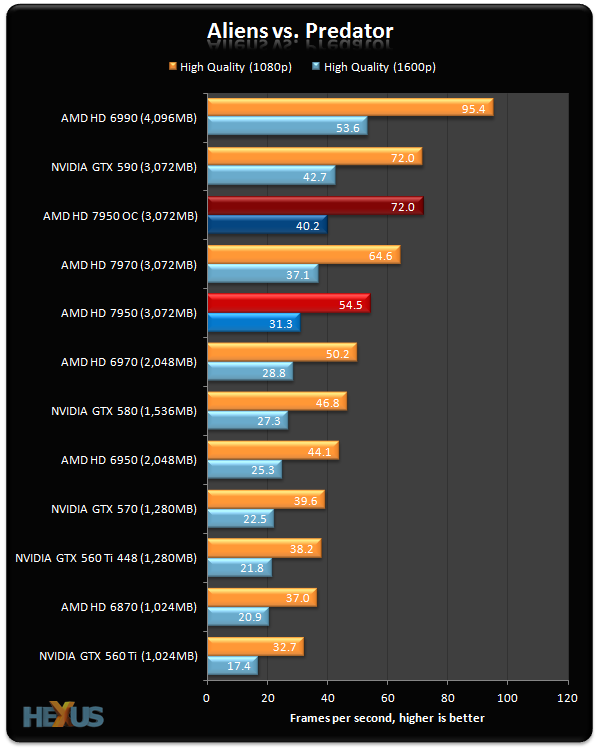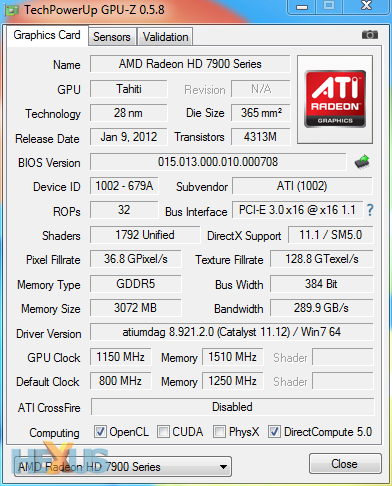Overclocking
So we've thus far determined that the Radeon HD 7950 3GB is a touch faster than the GeForce GTX 580 - a 15-month-old GPU - and some 15 per cent slower than the Radeon HD 7970.
Really, from what you're going to see next, the default-speed tests are verging on the pointless. Why? Take a look at what the reference card will do with some overclocking.
In the interests of full disclosure, we jacked up the voltage from the default 1.093V to 1.170V but left the fan-speed profile unchanged: the temperature measurements suggest that the heatsink can take more stick.
Anyway, the 1,150MHz core and 6,040MHz memory was completely stable during testing, and the GPU only crashed at a core speed of 1,200MHz.
| Percentage overclock | Core | Memory |
|---|---|---|
| 43.8% | 25.8% |
Yup, that's right, a 43.8 per cent hike in the core speed. Even though we know the HD 7950 architecture isn't quite as potent as the HD 7970's, which makes sense, the wonderful ramp in speeds will make this card faster than a 925MHz/1,375MHz-clocked HD 7970.

Ay, caramba! The overclocked HD 7950 easily catapults a HD 7970 and matches the twin-GPU GeForce GTX 590. A 30 per cent jump in performance represents a whole new class of GPU, let alone an overclock on a cutting-edge model. AMD's been very, very conservative with the shipping frequencies, clearly.
This level of overclocking bodes extremely well for add-in board partners, who should have no trouble in releasing 1000MHz/5,500MHz OC cards from the get-go. Indeed, one needs to question the £100 premium for the HD 7970 if this overclocking is representative of partner boards'.










